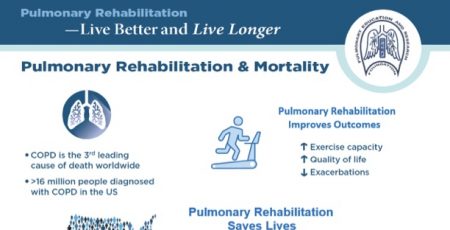03 Nov Frailty and Exercise Therapy For COPD Patients
Older patients with COPD are twice as likely to suffer from frailty as the general population of older people. In a recent study of 816 COPD patients, one in four were found to be frail using the Fried criteria (that incorporates weight loss, exhaustion, low physical activity, slowness, and weakness), even though the mean age of the group was only 70. This is a challenge for the efficacy of exercise therapy, as many frail patients will discontinue their exercise program precisely because they are frail.
Frail patients stopped exercise therapy at twice the rate of COPD patients who were not frail. Those who did continue on, however, experienced improvements in quality of life and lessening of the burdens of the disease.
Researchers Matthew Maddocks, PhD, of Kings College London, and his colleagues suggested that there is a need to explore ways to better support frail patients in their efforts to adhere to an exercise therapy program, because they can benefit so greatly from the therapy, adding that pulmonary rehabilitation exercise programs tailored to frail patients with COPD would help them access the treatment.
They also pointed out that, though frailty is more common in patients with advanced COPD, one in five patients with GOLD 1 category COPD (the mildest of 4 stages of COPD) were frail, so assessment of frailty should be done not only in advanced cases but in early stages of COPD as well.
Persuasive arguments for the need to find new ways to facilitate frail patients’ participation in rehabilitation therapy can be found in the findings among frail patients who completed therapy. After rehabilitation, both frail and non-frail patients in the study showed significant improvements in key measures of COPD including dyspnea and fatigue. Handgrip strength and physical activity also improved. Perhaps most importantly,, after rehabilitation 71 of 115 (61.3%) previously frail patients no longer met the criteria for frailty. Of those, 64 (55.6%) were reclassified as “pre-frail,” and seven (6.1%) were reclassified as “robust.”
Note: The information for this article was sourced from RT Magazine.





Pingback:PERF Monthly Newsletter – November 2016 | PERF 2nd Wind Blog
Posted at 07:24h, 30 November[…] …Read more […]
Chris Byers
Posted at 10:41h, 20 NovemberLove this! Thank you for sharing such an insightful article!
Ashley Harris
Posted at 09:36h, 25 NovemberGreat post!
Wellbeing 365
Posted at 05:13h, 12 AprilLove this, please write more like this again in the future!
Diet plans
Posted at 06:12h, 21 AprilGreat post! So happy I found this, thank you.